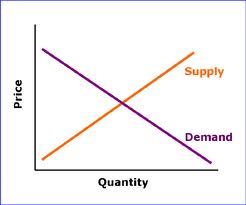Tennis research keeps product standards high!
When you play tennis, you don't realise it, but you are at the cutting edge of technologies that started when those first games of real tennis were played in the royal courts in the Tudor ages. They weren't perceived as technologies at that time, but they certainly are now.
One of the great things about working in Germany was that we had dynamic links with local non-sports related companies. Mostly this was in the form of sponsorships. There would then be a further knock-on effect, in that the club would have, through coaches and shops, contact with sports retailers and distributors. It would then be convenient to let the coach do everything. Speaking with one man, especially concerning technical details, is much easier than dealing with many. So, in a short space of time I would be having many informal and formal conversations with equipment suppliers and textile decorators, companies and senior club officials. All of these contacts greatly valued long-term profitable arrangements, and the coach was in the middle of it. Great fun! You had to know how to talk and negotiate, but you soon picked it up.

Supply and Demand
Then the coach will start to realise what the objectives of all these business players are. I was once approached by a strings and balls supplier. This was extremely delicate, because this new supplier was a "No-name" supplier. The strings and balls were produced in China on a new brand name, and the products were being sold at half the price of the branded equivalents currently being distributed throughout the club. As everyone knows, many brand name goods and no-name goods are in fact produced in the same factories with minor specification differences. So there are rarely quality issues in such an experiment. I was ready to have a look at what he had to offer.

Dealer
However, as a coach you represent these brands. These brands have worked very hard to establish themselves in your club and environment. In my last club job we sold Fischer and Prince rackets, Lotto clothing and footwear, Dunlop balls and Pacific strings. With none of these brands did we have an exclusivity contract, but simply a verbal agreement to maintain a certain loyalty, except if over-riding conditions caused us to go elsewhere. So my no-name supplier was encroaching on a delicate area.
For example when we strung a racket with a Pacific string the string would cost say Euros 5, and the No name would cost Euros 2.50. The stringing labour costs would be Euros 10, and of course the same for each string, so a restring would be Euros 2.50 cheaper using No Name. For match players who break lots of strings, this price may be important, but in my experience players prefer to play with tried and trusted brands. In our operation I calculated that the No Name strings would get maybe ten per cent of our total sales. Not really significant.
For balls the problem was different, because these No Name balls would only ever be for training purposes. The preferred match ball, the Dunlop, was obligatory for matchplay, so for those training groups who were from the teams, the trainers would have to use Dunlop for training too. However, training the teams constituted only 20 % of our total training programme. So 80 % of the courses could play with the No name ball at Euros 80 a carton instead of Euros 160 a carton for the Dunlop ball. This is a significant cost saving for the trainer. If the ball has good playing characteristics, the non-match player would not notice any difference. Also during such training, it gave me a great opportunity to test new strings, both No Name and Pacific. I had no testing arrangement with Pacific, in fact their string specifications and descriptions were usually so accurate that all the essential testing had been done. What was more of a problem with Pacific was making sure that the right player had the right string in the right racket. So I tried to get hitting and stringing experience of all strings before recommending them to clients.
Over a period of about eighteen months I tested the No Name balls and strings. I received certain consignments of new product gratis, and others I would have to pay for. So financially it was a particularly cosy arrangement. Of course, the players would notice that we weren't playing with Dunlop balls. Even non-match players are brand-sensitive, and there is plenty of resistance to brand changes, and in particular to going no name. However, I, as a trusted coach, would reassure the players that the balls were quite OK, pretty much the same specification as the Dunlop ball, and would correspondingly keep the price of their training down! I was even able to use the No-Name ball for the matchplay groups when no matches were imminent. I wanted also to test the balls in the hardest conditions.
At the end of the eighteen months the arrangement was over. I had given my feedback, and I then had to decide to take the strings and/or balls on a long term basis from the No-name supplier. In other words we should firm up our handshake, rather like we did for Lotto, Prince and the others. This was the really difficult part, because over time, the supplier, not a trainer or serious player himself, had come to rely on my advice, and give feedback to the factories in China. Also he wanted longstanding relationships with other stringers, coaches and clubs in the region. A full-time respected coach on his books was essential for the further development of his business. And like all good salesmen, my supplier knew how to cultivate a relationship. We had become intrinsically linked in the products. He needed me more than I needed him, but I certainly needed him.

So I agreed to continue using his strings. Not surprisingly the performance of the No Name strings was almost identical to the branded strings. We were in the performance business, and I had no hesitation in recommending the No Name strings.
The player calls the tune
This shows one example how workouttennis.com can help suppliers and manufacturers in valid market and product research. The communication over a long testing period greatly builds the technical knowledge of all parties. The coach is absolutely in the best position to do the testing. It is real life and market-driven.
With the balls it was different. The No Name ball simply wasn't good enough, not even for the hobby groups, and certainly not for the match players. The felt was fragile, the pressure not long-wearing enough, and the hardness, or hittability, very poor. In this factory they only produced supermarket balls. No performance balls would ever be produced there. You could ask yourself why? Does Dunlop have a way of keeping specification secrets, or patents from the rest of the world? Do they have some other handle on the market to make it impossible, or unprofitable, for No Name ball manufacturers to produce high specification balls? Is the price of Dunlop balls really the "correct" price anyway for such a specification? I've never worked in a ball factory, but as a coach, user, and distributor of balls, I am guessing that a bit of all of this is true.
This shows one example how workouttennis.com can help suppliers and manufacturers in valid market and product research. The communication over a long testing period greatly builds the technical knowledge of all parties. The coach is absolutely in the best position to do the testing. It is real life and market-driven.
Have A Great Story About This Topic?
Do you have a great story about this? Share it!
